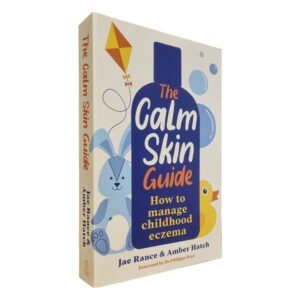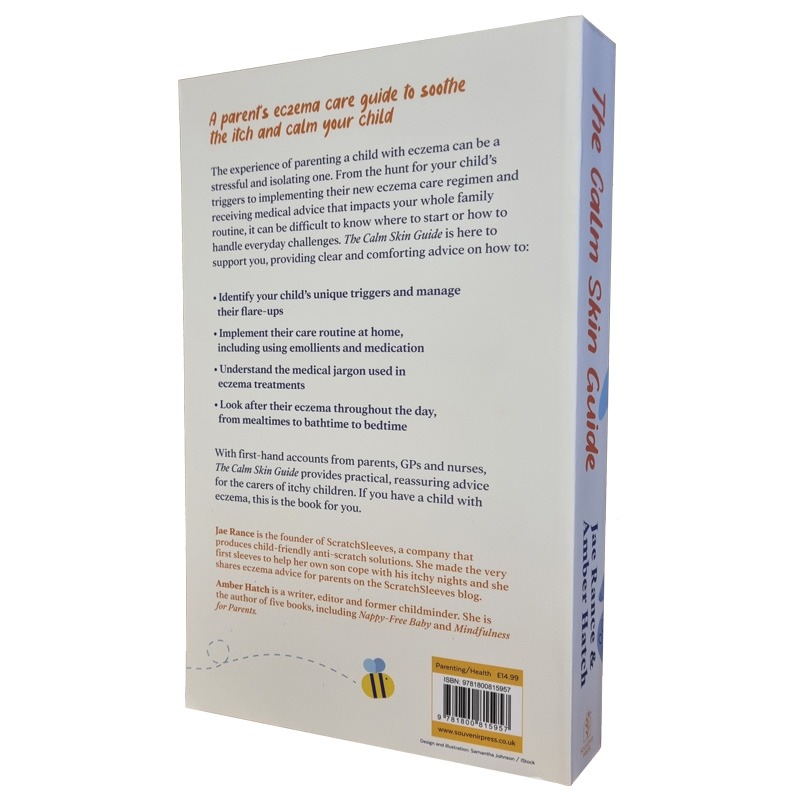Complementary therapies: Essential oils and eczema



Essential oils have been used in the treatment of eczema for hundreds of years. However, there is not a great deal of reliable scientific evidence to support their use. While there is some evidence that essential oils may have anti-inflammatory or antimicrobial effects which may help ease some eczema symptoms, there is also good evidence that essential oils commonly aggravate skin conditions. We look at the pros and cons of using essential oils to treat eczema.
What are essential oils?
Essential oils are a mix of compounds taken from fragrant flowers, bark, leaves, or fruit of different plants. They are often marketed as a natural alternative to conventional remedies for a number of eczema symptoms, from skin infections to helping with sleep. However, there is very little robust scientific evidence that they can improve eczema symptoms. While this does not mean that there isn’t supporting evidence that has yet to be discovered, essential oils should be treated with a great deal of caution.
Essential oils are known to irritate skin and trigger allergic reactions when used directly onto the skin, diluted in bath water or diffused into the air1. These reactions can happen to anyone who uses them, but people with eczema are particularly prone to reactions. This is because the skin barrier of eczema sufferers is damaged making it easier for their skin to absorb any irritants and allergens in essential oils.
The best illustration that I have of the widespread nature of these reactions is that the first thing I’m asked when I talk to dermatologists about this blog is: ‘You don’t recommend essential oils do you?’.
The problems with using essential oils for childhood eczema
Ingredients may vary
Essential oils are extracted through a steam distillation process that uses heat and solvent chemicals. The result is a highly concentrated liquid mix of chemicals including both the active ‘essential’ compounds and other compounds that have made it through the extraction process. As they are derived from a natural product, essential oils will also vary from batch to batch.
Unregulated sale and production
Anyone can set up a business extracting and selling essential oils to the public so long as they don’t make any medical claims on the advertising or packaging. There is no way of knowing how pure an essential oil is.
Risk of skin irritation
Eczema sufferers are particularly prone to skin irritation from essential oils in all their forms. This includes undiluted, diluted in a carrier oil, diluted in water or airborne. While they may help with some people’s eczema, there is a high chance that any one oil or batch of oil could cause irritation.
Toxicity
Essential oils can be toxic if ingested, tea oil alone was responsible for 1387 poisoning incidents in Australia between 2014 and 20182. Personally, I’d rather play it safe and not keep unnecessary toxins in the house.
Essential oils commonly associated with eczema treatment
These should not be taken as recommendations for usage, but as a list of ingredients commonly found in children’s skin care products to treat with caution. Some essential oils are found so ubiquitously that it is easy to miss them as potential eczema triggers. For example, lavender oil diffusers are commonly suggested as a sleep aid but may actually be contributing to the problem.
Borage
Borage oil is derived from the seeds of the Borago officinalis plant and is rich in Omega 6 fatty acids. These fatty acids are important in maintaining a healthy skin barrier but are typically lacking in eczema skin. It has been shown to reduce the symptoms of eczema when applied directly to the skin in two studies3, 4. While encouraging, both studies were small (looking at just 69 children in total) and more research is needed to establish long term benefit and safety.
Tea tree
Tea tree oil is produced by distilling oil from the Melaleuca alternifolia (Myrtaceae), a tree that is native to Australia. It is thought to possess anti-inflammatory, antimicrobial, and antifungal properties that are likely to be beneficial for eczema sufferers. However, tea tree oil needs to be diluted in a carrier oil to reduce the risk of irritation. Again, while the results of scientific studies are encouraging5, more work needs to be done to establish benefits, safety and dosages.
Lavender
Lavender oil is commonly used to promote relaxation and sleep and has been used for centuries to promote wound healing. Early research indicates that it also has anti-inflammatory6 and anti-microbial properties. It has been shown to be effective against the bacteria Staphylococcus aureus, which commonly infects eczema skin7. However, it is also known to cause contact dermatitis in some people8. Lavender oil should always be diluted in a carrier oil and patch tested before use.
Chamomile
Chamomile has been used medicinally since ancient times as an anti-inflammatory, antioxidant, mild astringent and wound healing medicine. Initial research suggests that chamomile can be helpful in reducing the symptoms of eczema9 and the likely mechanism for this is the dampening down of inflammation pathways10.
Clove oil
The painkilling properties of cloves have been used for centuries as the traditional cure for toothache. These same properties have now been shown to reduce itching resulting from a number of causes (although no eczema cases were included in the research)11. It has also been shown to have antimicrobial12 and anti-fungal properties13.
Carrier oils
While some essential oils (including lavender and chamomile) can be used undiluted, the majority will require dilution with a carrier oil to minimise the risk of skin irritation. Dilution reduces the risk of irritation by spreading the active compounds more sparingly and can also improve their uptake into the skin.
Common carrier oils include sunflower oil, coconut oil, jojoba oil and almond oil. Given the growing understanding of food allergies growing out of skin sensitisation, it is wise to avoid the use of food oils until your child has been eating those foods for a while. This is especially true for nut oils. For blended carrier oils, check that they do not include peanut oil (also known arachis oil). Olive oil should also be avoided as this can damage the skin barrier14.
Other risks associated with essential oils
In addition to the risk of skin irritation, there is also concern that essential oils may cause hormonal changes. Over 65 essential oils contain compounds that are hormone disruptors which mimic or oppose hormones made in the body. Repeated use of essential oils containing these chemicals may lead to unwanted hormonal changes.
For example, clinical research found that repeated use of topical lavender oil and tea tree oil likely caused three adolescent boys to develop breast tissue15.
In summary
While essential oils can help alleviate eczema symptoms in some cases, the current lack of research into their effectiveness and possible side-effects, coupled with the lack of regulation over their production, makes them a risky choice for treating a child’s eczema. They are the ‘pet hate’ of every dermatologist I have spoken to.
If you do decide to try them, wait until your child is over 3 months old, choose a good quality supplier for your oils, dilute with a carrier oil for topical applications. As with all new topical products, patch test each oil (in the carrier oil) before using.
Our sources
- https://pubmed.ncbi.nlm.nih.gov/22936057/
- https://pubmed.ncbi.nlm.nih.gov/31709543/
- https://pubmed.ncbi.nlm.nih.gov/8095744/
- https://pubmed.ncbi.nlm.nih.gov/18078406/
- https://www.ncbi.nlm.nih.gov/pmc/articles/PMC1360273/
- https://www.ncbi.nlm.nih.gov/pmc/articles/PMC5878871/
- https://pubmed.ncbi.nlm.nih.gov/12510839/
- https://pubmed.ncbi.nlm.nih.gov/10985632/
- https://pubmed.ncbi.nlm.nih.gov/10799352/
- https://pubmed.ncbi.nlm.nih.gov/34658853/
- https://pubmed.ncbi.nlm.nih.gov/28382655/
- https://www.ncbi.nlm.nih.gov/pmc/articles/PMC3769004/
- https://www.ncbi.nlm.nih.gov/pmc/articles/PMC6060867/
- https://pubmed.ncbi.nlm.nih.gov/22995032/
- https://pubmed.ncbi.nlm.nih.gov/17267908/
As well as sharing our experience of bringing up an eczema child (and favourite allergy-friendly recipes), we also manufacture and sell our unique stay-on scratch mitts and PJs for itchy babies, toddlers and children. We now stock sizes from 0-adult years in a range of colours and designs. Visit our webshop for more information.
The Calm Skin Guide
Love our blog? It's also available in book format with:
- First hand accounts from parents & medical professionals
- Easy navigation
- Comprehensive index
- Additional material
Signed copies available at no extra cost
Written by:
Interesting article? Don't keep it to yourself...
Read next...
You may also find helpful...
Quick buy


Multi Buy Discount

Spend between £30 - £60 and save 5%
Spend between £60 - £120 and save 10%
Spend over £120 and save 15%
Discount automatically applied at checkout
No Quibbles Guarantee

ScratchSleeves abide by a no quibbles guarantee.
Free UK Postage

Free packing and postage on all UK orders. For overseas orders to Europe postage is from £3.50, to USA is £6.50 and to the rest of the world, from £3.75.






